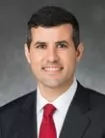Judge McMahon issued a written Order on Friday, answering the parties' questions ahead of a bench trial in an ERISA case, and, in doing so, offered helpful guidance as to her practices in bench trials.
First, she was clear she does not want opening statements, and perhaps not even closing statements:
The last thing I need is opening statements. You have been "opening" on this case for two years. We will see if there is any time for closing statements, let alone any need for them, as the trial progresses.
Second, she wants direct testimony in written form, and limited objections:
As for "objections" to the witness statements — I simply don't bother with them in bench trials. I know if something is irrelevant; I know if it is hearsay; I know what to ignore. If you really feel that something in a witness statement is objectionable . . . then you must submit something in writing, which in one paragraph per objection explains the basis for the objection, citing the rule of evidence and explaining exactly what bit of testimony runs afoul of that rule and why.
Third, she is also uninterested in objections to documents:
[Y]ou can assume that all exhibits are in evidence – I don't worry much about arguing fine points of evidence law when there is no jury, and I do not have hours to waste prior to or during the trial making evidentiary rulings and trying to cull your exhibits down to a manageable number. Whether I will pay any attention to all the stuff you are proposing to submit (you are really overtrying this case) is another matter; in fact, at the conclusion of the trial, if an exhibit has not been referenced, it will simply be stricken from evidence.
The content of this article is intended to provide a general guide to the subject matter. Specialist advice should be sought about your specific circumstances.


